Army Reserve Soldiers from the 4th Battalion The Princess of Wales Royal Regiment have been on exercise on Salisbury Plain.
The British Army say in a news release that the troops were putting their skills to the test in assaulting and securing buildings in an urban warfare environment.
“The exercise was delivered at Platoon level, with individuals coming together from across the Battalion’s four Companies for their final training weekend of the year, Exercise Punniar Tiger. Approximately 70 soldiers from across the south east took part, although numbers were reduced this year in order to adhere to the COVID-19 restrictions.
On receiving orders, the night before, the soldiers moved into position for a final dawn attack on Southdown Barn situated on the Plain which is the largest area of chalk grassland in north-west Europe.
The assault took place on the old barn and its outer farm buildings. It involved the soldiers working through a series of room clearances, climbing over walls and storming the buildings within, using various weapon systems to achieve their objectives, firing hundreds of blank rounds and using special training smoke grenades.”
The British Army add that the purpose of the exercise was to develop 4 PWRR’s Urban Warfare skills and tactics, techniques and procedures.
“Whilst the Battalion has no need to train for subterranean warfare, the environment provided the opportunity to develop a number of core skills and capabilities which enhanced their ability to operate within complex terrain.”


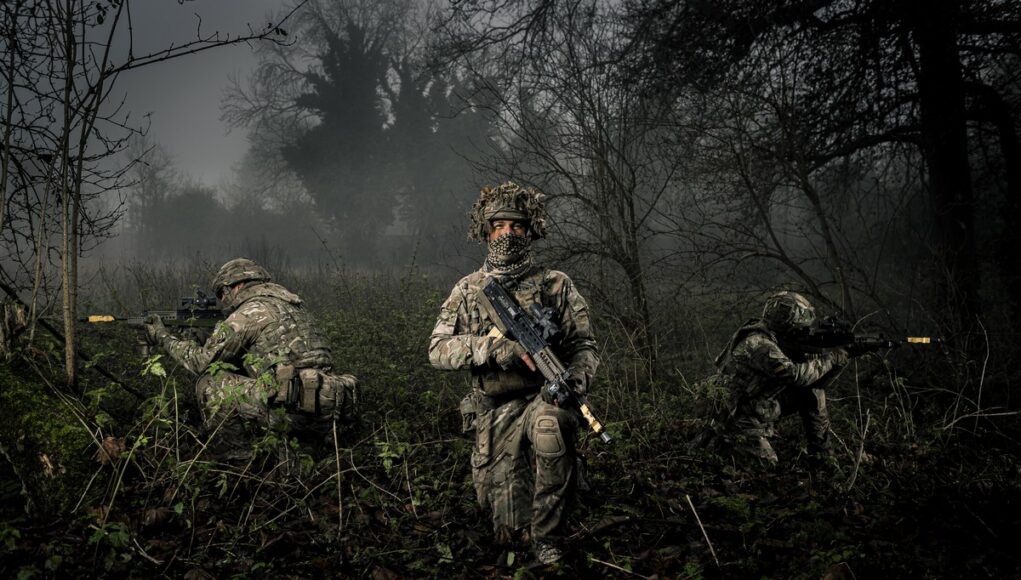
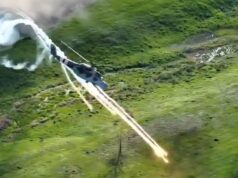
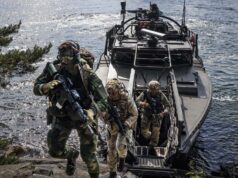
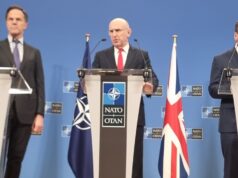
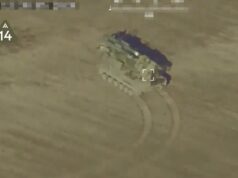

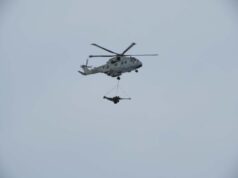


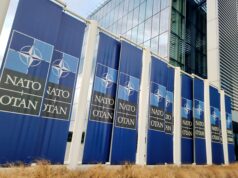

Anyone from 4 PWRR? Love to know how the new Battalion is progressing.
Rob like most reserve units, cannot get the numbers and the people. No matter what you plan 6 weeks plus in advance, it’s always a Friday night ORBAT. As an ex SPSI for two years, no matter how many people you have on your books, you will only ever get your usual committed 20-30 on a weekend and maybe 15 plus on a drill, night.
Airborne.
Yeah I was once an instructor with a Cadet unit (I know, but it was fun). We once did a camp at Browndown Training Camp (doesn’t exist any more I believe). We were warned the Wessex Regiment TA (yes some time ago) were in camp too. Turned out we had 300 and they had 30! We ended up firing most of their blank and bull as well as other pyro. Thanks lads.
that was my old battalion, 2 wessex (c company), what year was that?
Right after Gulf War 1. Summer 1991??
Few years too early for me!
Mate. Controversial question.
Is the Army Reseve worth it with regards combat units of the infantry and RAC?
I’m unsure how much of our budget goes in it.
If it’s so poorly attended would it not make more sense to prioritise CS and CSS units?
The RAMC FH, for example, tapping straight into the NHS. And other specialists like logistics and signals.
Do enough members go on to full time?
Otherwise isn’t it better to just have the ex regs who have just left and have a call out liability as our “reserve”
I’m not sold on this either way, just thinking.
As ex TA, that this exercise got a press release is a scandalous indication of how tiny the aspirations are now.
70 people exercising was a weekly event in about a hundred units when I was in (2000s), and we’d taken a big hit in numbers post the Iraq invasion as a lot of people got called up and that cleaned out the bounty hunter wasters (things got a lot emptier of people – but we had much more comitted people).
Why do reservists need to go “on to full time”?
“Ex regs” tend to be the worst – a toxic mixture of arrogance (to be fair not completely unjustifiably given their much greater experience and quals) and the fact they have left the regulars generally means they dont want to be in any kind of Army at all. Hence the post SDSR10 “boost” to get ex tegs to join consisted mostly of ex regs gaming the system for bounty and doing f’all of value.
With some notable exceptions, regulars are conditioned to being made/induced to do something with their effort going towards macimising their spare time, part timers need to have a drive to want to do it as it is their spare rime – the two cultures will never mash well. Indeed the same can be seen on ops.
the other issue is the prevalence of regular commanders in reservist command appointments who dont realise that leading reservists is harder as you have to make them want to do it, and if you piss them off they vanish – vs regulars who have no choice.
Pretty much right on most points mate, certainly about the reg Officers and their command and control skills. Piss off a reserve and they can walk. However you said that ex regs can be quite arrogant, that can be true but most ex regs I have come across, aren’t arrogant, they are just shocked how badly most reserve units are run. And to be fair you have also contradicted yourself as saying the Reserves are keen and want to do it, then when an officer shouts at them off they go, in a strop……so it can be construed that they want to be soldiers, but only if they don’t get shouted at and not given an order they don’t like?
The difference nowadays between the old TA when it was cold war, is that the Reserves, let’s say since about 2006, have had to be useable and deployable. I expected, when I turned up at my unit as SPSI, and I told them, that the reason they should be here in the Reserves, is to volunteer and deploy with my Battalions next Afghan tour. That was something to aim for, otherwise go home, and get your drinks in the pub at home.
However the Reserves are under funded, you still have the bounty hunters you still have 95 people on the books and you still get the 15 or 20 turning up. The Reserves aren’t working at this time, and out of about 26000 on the books, you will have roughly 2-3000 regularly turning up and wanting to deploy.
Hi,
The main problem with ex regs (joining as ‘members’ rather than posted as a PSI) is that they are Ex for a reason, normally because they dont want to be in the Army (and/or the Army doesnt want them). The idea of people flitting happily between the two was always naieve and few regs I’ve met want when they get out to give up their weekends to do the ‘same old’ especially as development/progression is always going to be exceptionally limited. Some do as its money for old rope but then they bring cynicism and lack of energy. A few, a small few, really do make the best of it, bringing their experience and quals across and being beacons of example to reservists and importantly, making stuff happen because they know how to. The total failure to make switching betwen the two Armies a viable career, because the services simply cannot overcome the inertia of the current “promotion traveltor” career structure has well and truly killed that concept, if it was ever viable or desireable.
The comments on badly run are a mixture – AR units are really run by permament staff and regs. TA/AR Officers/SNCOs are a very mixed bunch (I was one!) – but probably no more than Regs are except they tend to have demanding civilian jobs and so their time is limited even if they are good.
The “you’re here to deploy on the next 6 tour” is symptomatic of the Regular Army being the problem where everything is seen as short term because that is how the Regular Army works. That view is blind to the fact these people already have jobs and careers and they cannot (and should not) be subordinated to whatever the Army is doing with its formation plot this week. So I think that is a terrible attitude to take into a TA/AR unit.
I do absolutely agree the idea should be to be there and train to deploy – but the “with my regiment next time” is wholly inappropriate. By the end of my time I sustained a third of the detachment on Ops or FTRS – deployed all over the world. That’s adding value and fitting round people’s lives. I’m thinking more “a” tour vs “the” tour.
The TA worked best when it looked long term – once you’d got someone for 4 years you had them hooked as their life was now integrated with it. I know some units flirted with schemes where you join, deploy and depart – they may have worked with some more boots on the ground but they left zero lasting legacy. That’s a telling failure in an institution (the British Army) that for its history has excelled in being professional and successful by virtue of experience and long service vs the in/out (and lose the imparted and gained knowledge) culture of conscripted Armies.
I dont think Ive contradicted myself in terms of ethos – its nuanced but in short yes Reservists are eager etc, but like a regular they can get pissed off. The key thing is they dont need to be there whereas the Regs are compelled to be. It takes real leadership to balance keeping them happy and getting something useful out of them. Something few generally have, and very few regulars (any?) have as their formative experiences are with people who dont need that and they can always (and do) fall back on rank and discipline. Having been in both camps, neither is perfect but people who want to be there and want to do stuff are better than those sullenly following out of compulsion.
Of course the counterpoint is how reservists perform on ops where they cant walk away and how you prepare them for that. I think however that this misses people adapt to what they know the rules are – generally though reservists seem to maintain that enthusiasm and have the advantage of knowing when it ends, it ends! But there is another conflict in that a reservist is called up for a year, for a reg its 22 – one is running a sprint, the other a marathon and Ive seen on ops conflicts from regulars doing the bare minimum with their eye on report/next posting/promotion/getting out vs reservists wanting to acheive something now and not interested in those factors. The same way in Afghan we all did 6 month “action action action now, then go home and rest” tours and that utterly failed to gel with our Afghan mentees/partners for whom it was life for ever and who had a different pace and thus attitude to survival.
Attendance wise I managed to routinely get 50% attendance from a 70strong Det (those that werent deployed!), when I arrived that was in single figures. It consumed me for 3 years but a mixture of what we know are the basics (really knowing people, developing them, challenging them) as well as ruthlessly suppressing/disposing of the toxic individuals (all ‘old’ TA for whom an arduous weekend was sign in Friday, pub/home, rock up mooch about Sat, beer call then home, wander about Sun AM then home for lunch – main effort being filling in the pay form). It can be done but it takes time and commitment plus support from others (I had an excellent PSI and a few excellent people I set free to drive things).
The reality is that 30k on the books and 2-3k active is a complete and abject failure of leadership from the top down. I’d put it down to:
– Regular Army driven centralisation. Fewer but bigger detachments. Misses that this is essentially a local organisation akin to being in a local sports team and good attendance works on the FOMO (fear of missing out) principle among what are now local mates for life. Careerist regular officers see travelling here and there as entirely normal and that one does things like that for ones career – but most people, especially the young and lightly encumbered people you want as reservist soldiers – dont live like that, and wont.
– Lack of opportunity for Reservist SNCOs and Officers to gain experience in different roles. As a AR SNCO or commisioned officer you can spend most of 20 years in command appointments – it gets dull and you get dull. The shrinking structure means the pool of suitable people across say a Brigade AO is tiny hence whilst making people move is good for them and the unit, there isnt the pool to replace them. This resulted in huge gaps and a lack of say JOs may be perceived as a good thing by some, but that cohort bring energy and admin processing capacity plus its what resetvist soliders houkd see as their regular counterparts do. At NCO level these are people pretty stable in life – they dont want to post around and travel, and are still in because their mates are in their unit. Move them you really risk losing them.
– That the admin burden of doing anything (eg. taking a platoon into the field for 2 nights) is so high that organising it is a full time job. Regs no doubt will agree on the admin BS for anything seems inexoarbly to go ever upwards (not a bad thing at its core given lack of H&S etc in the past!), but bringing the AR up to scratch (I agree it was/is “badly run” admin wise) requires time that AR staff just dont have and results in PSIs becoming little more than clerks (who to save money we got rid of and added that burden to everyone else). Hence why an entirely mundane run of the mill exercise with a handful of people gets a press release as it probably takes several starred officers to make it happen now!
– Still next to zero support for pers in terms of inducing employers to support them (and supporting those whose employers dont). Compare to US and Australia. Employers there can profit from having reservists on their books and having them away doing part and full time military jobs. The MoD has never been bold enough in this area, but that reflects of course that MoD rarely looks out for its people especially if money is involved. As we see with the RN, reservists are always looked at for the chop in training because its an easy lever to pull – that the people wont be there to come back when you try and turn it back on is either over their heads or they dont care (seeing a longer term saving also!
Wow, thats a lot of waffle!
Lots of points to discuss here, but curently dont have the time, but I will grab hold of one. You say its a terrible attitude to take into a TA unit? Realy? surely they are soldiers and join to operate and deploy as soldiers? Thats the essence of it, same as why people join the Regs. I understand circumstances for the Reserves are different (My daughter is one) but at the end of the day, its not a reservist first choice of career, so either make the effort or dont. Its no longer a drinking club, and with the Governments current concept for the reserves, if you join you need to want, and be able to deploy on current and ongoing operations, simple. Dont like it, get another hobby. Cheers
Concur so much with the last few sentences here Airborne. If you’re in, you need to be in, and if having a reg show up and say “you need to be ready to deploy.” is too much of a shock then sorry it’s the wrong hobby (or actually since you are being paid, job).
Worth noting as well if Regulars get too pissed off they can walk too. After their first three years there is litterally nothing compelling them to stay except a paycheck, same as the reserves.
Mate the individual skill set and experience can be good, but as formed unit’s its terrible. You do not, cannot get, the same amount of skills and experience when it’s a drill night a week, a couple of mandatory weekends and an annual camp. For example, any career course they do, is vastly shortened due to the nature of the reserve soldiers limited time available.
Combat arms are only good for filling in individuals and small numbers into an aleady formed and prepared regular unit. The whole concept of the Reserves, which over the last few years has become more of a pplitical money saving plan, is wrong. Whereby they are supposed to form the 4th/5th Rifle Coy in Battalion etc. On the quiet it was realised early on that they cannot be used as formed units and it’s quietly gone back to individuals and small groups filling the gaps.
Don’t get me wrong, some of the people are very good, very committed and up for it. I was always amazed that after a full weeks work, many turn up on Friday night for a weekend’s training. However the Reserves still attract people who have a skill set as a civvy, and most utilise that skill in the Reserves, depending what formation tney join. I always thought, as you have said mate, that the Reserves are more useful when the nurses, doctors, truck drivers, comms techs, builders etc go into a unit where there experience is easily transferred. I know some would want to do so thing totally different, hence maybe their reason for joining up, but generally they bring more to the game in a CSS role than combat arm.
Mate this is a subject where you cannot bluff or deny the issues. The reserves have been made political, in order to save money and when the Government decided to make the Reserves bigger, and the regs smaller, and used the Australian military as an example, it went pear shaped fast. The sad thing is, shortly after that descsion was made the Aussies stated that they were increasing their regular forces as the reliance on reserves wasn’t working. Crazy isn’t it mate.
Damn I’ve waffled on quite a lot, but it’s from my experince as an SPSI, which was supposed to be for two years, but luckily it was only for 15 months as got dragged back for yet another trip to Afghan….
Thanks mate. Waffle away, I for one respect it.
So, after that I still wonder whether the money spent on the reserves might be better spent elsewhere. If there was a major war what % of them would be relied upon to turn up.
Skills like meds, sigs, engineers, especially from the likes of RE LSC who are experts in their fields seem ideal.
Pigeon asked me “Why do reservists need to go “on to full time”?
I suggested that as I wondered whether disbanding most of the reserve would have an effect on recruitment for regulars. I’ve read some get in the reserve first to see if its for them then apply for full time.
A bit like the RAF UAS. Many of the RAF’s pilots come from there.
Cheers mate.
In a major war there would be very little time to get them to turn up and deploy, although, as you are aware, that would be depending on the timescale and the tension and political posturing leading up to actual war. Not many, I fear, would make the effort, as the last thing most people would want to do is leave their family voluntarly in times of serious tension. Some would, I’m sure but it’s human nature to protect family first.
We need the Reserves mate we sure do, but in more niche and technical roles, where combat is a secondary self defence nature, and there civvy skills are utilised more. I know we do that already, but I would reduce combat arms manpower, and make an effort to re-direct those people to the more technical aspects, where we as an an army are lacking across the board. I for one would prefer to get some reserve RE lads, some Siggies, RLC etc who act as both force multipliers and role specific SME, than a dozen more toms to fill out the rifle sections. Cheers mate.
Pretty much what my thoughts were too.
Cheers mate.
Actually UAS is like URNU, more about putting pro RAF people out there who will go on to be infuencers in government and business. Some do of course go on to join, but they would have joined anyway. Pilots are so over subscribed its irrelevent.
In terms of the AR composition, I think Platoon to Company level could work, noting the US deployed entire Brigades and Divisions! Having said that – some TA officers are seriously competent, way out performing regular counterparts, although the issue with higher unit/formation is lack of cohesive experience rather than lack of some key individuals.
What they need is the same pre deployment period as a regular, given regular units can also be little more than a bunch of semi trained individuals. Also equipment – and not just when deploying. Few reservists would have seen a SUSAT or a GPMG, let alone PPVs, Bowman or for techies, half the kit they are expected to support.
I can see the logic of a more technical bias, although that has largely already occurrd over the past 70 years – but this misses that part of the remit of the AR is footprint in society and combat arms have a manpower mass that delivers that – equally civil aid needs organised labour. Not enough of that is done I feel.
As for turning up for war, I’d bet a very high proportion would. Few contest deployments and few did in 2003 when they werent volunteers by any stretch of the imagination. For me, a reason I ended up leaving was the difficulty of getting a tour – although ended up with many years of multiple ones 🙂
Course lengths is an issue, but in all honesty having done both sides, 3 weeks, or a modular series of multiple 3 weeks – probably sees you take in about as much anyway. Most military courses are way over long and between wasting time and machine gunned by powerpoint are just boring people but keeping the instructor system happy…
The REME is an example, plt comd was 3 weeks for all 15 years ago and had been for decades. Now 6 months because thats what the RN and RAF technical branches did and the Army wanted to get in on the same style. Result, as with the RN and RAF, bored people who learn and dump to get out the other end. RAF now slashing down to c.10 weeks.
Agreed it was all political smoke and mirrors, I regretted leaving at the time because it seemed we could move into the US/Australian model, be resourced and be useful, but equally I cynically figured it was all just a sham to be cheaper – which of course it was – so in hindsight a good move.
Thanks Pigeon.
A fascinating read.
Agree and disagree with many points, it does seem we may have had differnet experiences, or at least perceive things differently. I disagree with your comment about most turning up, as depending how motivated your unit, my straw poll of many units and individuals as my time as a SPSI, proved that many would not volunteer for an Afghan tour. Would they think differently if the country was threatened and there was time to do some build up training, possibly, but from my experience, getting enough volunteers for a formed unit is impossible.
Correct about the course length issue with the Army, many are to long, but just because they are that way does that mean all course should now be reserve length? My fav example, as its easy to see, was the class 3 PTI, Regs 6 weeks, TA, 2 weeks. To me thats about not just showing how to do somthing but getting the opportuntiy to practice, and get better. That is the main difference, regular soldiering involves the option for longer and more in depth training.
And for pre-deployment training the reserves lads get the same amount of time as the Regs, which for a Herrick tour waskicking in 6-9 months prior, ours having to start at the 6 month point. I must confess I was shocked how little kit, and training opportunites my TA Sub unit had and got, and took me a long time to sort that out. You are correct that in command positons it hard for most Reserve Officers to get higher formation experience, and that does show.
All in all, the Reserves are essential, howerever I am a firm believer that most combat arm units, struggle to both recruit and maintain standards. I would rather reduce the combat arms and increase the tech aspect, Loggies, RE, Sigs etc although understand amny might not want to repeat their day job in the Reserves lol. I was lucky, I was combat arm for 29 years, and my Reserve unit I was an
SPSI for was quite competant, but speaking to and observing others, there were, and still are, many many issues needing resolving, and funding is number one. Cheers.
I was in the TA during Balkan conflict. We had a number of guys go do S-types – some to NI as well. Some were ex-regs, others were the cream of the civvies who really wanted to join the regs anyway, but hadn’t made that decision at 18-20 and were doing well in civvy careers. You’re right: no way TA infantry could form a deployable unit, but individuals here and there helped make up the numbers in the rifle platoons. What I found interesting was that a TA platoon sergeant, perhaps with 5 years regular experience (RTR) would only be accepted into a regular rifle battalion as a lance corporal. That must have been pretty de-motivating yet probably showed well the gulf….
The drop in rank persisted for a long time. Agree it was daft but it came more from there not being many slots in TA units for more senior people and a history of some ex regs coming in and becoming bounty hunters whilst also hogging the few slots that were had.
Agree on exercises, we frequently exercised the Bn or Regt, but really it was only multiple coy(-) doing the same things largely independently. By the end they were large platoons with OCs pulled away into meetings and Pt Comds running it (which kind of made sense).
But thats a function of what you recruit and resource for. 2 decades of IAs means thats all you can achieve – plus those deployed individuals are generally the key people, the organisers, the leaders (not nessecarily commanders!), the ones who get their mates out. So with them gone the remainder lack push and energy. Unless you have astonishgly good or dedicated staff to stand in, result is Regt’l level exercises with single figure soldiers (seen it).
Apologies for criticism and that probably comes across harsher in writing it. It’s symptomatic of the disconnect I saw between a very ingrained regular “we’re here to rish off and fight” culture and the sudden desire to use volunteer reservists to fill holes – then the looking down upon reservists as “not real soldiers” becuase they werent instantly like the only thing regulars know and understand. Followed by the inevitable reaction to try and make them like what they did know whilst all the time never bridging the gulf in respect and understanding.
Its a terrible attitude because it demands people who already have lives, drop them and conform to your (by which I mean the Army’s) short term agenda of X Regts/Bn’s upcoming tour, or labelling them as merely a drinking club bunch of wasters. That just isnt reasonable – you need to accept their value to operations can be and is over the longer term and manage them accordingly.
To reverse a previous analogy – they are part time and so have a marathon to run, not your regular units sprinting plot.
The US Army for instance I think expects full time to deploy every 3 years, NG/Res every 6 on a pretty predictble drumbeat. That’s sensible vs your perspective of “the Bns been told its going away in months few, be with them or walk”. Which is exactly the attitude Ive seen and I am robust in saying that is not an appropriate way to treat reservists who already likely have defined life and work commitments in that period. To mash another phrase – the Army’s inability to plan should not be the panic for the Reservist.
Remember, these tours have been peactime wars – hell we had 10,000 people of all services in Afghan from a 100,000 strong Army – less than 1 in 10 were there at any time, so why the hell must volunteer reservists drop everything to support that? It might be the all consuming thing for those involved closely, but take a step back and that wasn’t the reality even for significant parts of the Regular Army. Where I am now I have 15 year Regular SNCOs who’ve never been overseas on even a Det!
I think your approach is conditioned by your time as to how the Army does plan/operate and the “drop everything” culture is ingrained. The perspective I have is that if it wants to use these people other than for WW2/3 which for a century plus has been the arrangement and culture then it needs to understand they are different and it needs a better plan if it is to transition the organisation from that state to a newer more reactive one. The fact, that we all seem to agree on, that the current situation is dire, suggests it hasnt.
Ultimately if you want something very different from a system, you have to really do something very different to/with it. Rebranding it and some PR images of “new equipment and training” is not that.
However, in no way should what I wrote be taken as them not needing to deploy (which is also the best experience they’ll ever get and makes them far more useful over the longer term) – but it needs to be managed over a longer term and include the full gamut of options such as FTRS.
I think the pairing of units wasnt helpful as they lacked the mass to deliver and it made it too linked to the regular units drumbeat vs this longer term view. The Army were however – having been at the centre of attempts to form deployable subunits – never any good at articulating the requirement in terms of specifics (plus were unable to equip a subunit with even basics which more than the lack of people killed the idea – as you know well a subunit imposes a lot of demands to exist and be sustained – the resources werent there to do that), whilst more generally the MoD then as now shied away from protecting people employment wise which massively inhibited volunteers. I lost count of the people who told me they wanted to deploy but their employer had said they’d lose their job, indeed, had to hide their service from their employer. The Army’s response was a mixture of indifference to employers actually breaking the law by doing that, and mindless admin BS in mandating signed forms by employers! Contrast that with how American reservists are viewed by employers and the culture there, with DoD and Army organsiations being very assertive in supporting their people when employers dont behave. How can you expect people to do as you want when they come back and cant pay their mortgage or feed the family? Its insane and no regular would tolerate that – look at the deliberate decision to protect all deployed from the 2010s redundancies (my regular SO1 was only on that tour to hide from redundancy!). But the MoD/Treasury/Politicians did and do, nothing.
In short – if you want people to deploy in the way you say you do – pony up the money to employers as the Americans and Australians do. Simply changing the policy to want and demand more, but do nothing of substance – and you’ll get the conflict of interests and poor outcomes you refer to.
Ultimately the problem is that the Regular Army/MoD saw the Reserves purely as a cheap and easy option. The cynics were entirely right in their assessment.
Which is a shame because as the US proved, as did many deployed indiviual augmentees, reservists can make an enormous contribution. You just have to drop the “do it now” attitude (which is fine when they are “on Army time”, but not when we are talking about how that time is balanced with their existing work and life commitments) and accept it isnt about money (all the MoD cares about) but about resiliance and having a reserve in the meaning of the word, a pool of people that augment your permament force to support surges and capacity for the unexpected. Doing as we did, seeing them as a cheaper versions of permament forces was and remains, doomed to failure on all sides.
Ultimately, they are still “soldiers” and their forebears proved twice last century they could turn up, fight and die like anyone else, whilst the Regular Army has some very ignominius episodes of failing badly – usually at the thinking level which is the same level its failing to manage its reserves because it just wants to see them as a cheaper variant of what it knows and what it thinks a soldier should be.
Plus, didnt regular soldiers sign on for a reserve component of service? Where are all these experienced, competent and motivated people? Why again are we relying on volunteer reservists?
Wow Ive really started to waffle these days!
No mate its fine, we are all entitled to waffle on occasion, especialy on subjects we know about or are close to our hearts…..possibly lol. I think the main theme here is that the Reserves are an absolute neccessity, individuals can be motivated and experienced, exactly like the Regs (and some dross, exactly like the Regs) BUT the Reserves need changing from the top down, they need funding, and they need to be focussed on more specialised areas (in my opinion). No longer should they have second rate kit and beg borrow steal items for training and exercise. Alas little will change as their is no will to do so from our politicians and more sadly, form the various CDSs rolling through…they seem to be going around in circles trying to sort the Strike Bde abortion out. Cheers mate.
I can see your logic – but as a technical person it actually takes a long old time to get someone fully trained as a technician and supervisor. Noting regular trade courses are far longer than regular infantry courses. Getting someone there requires a vast amount of courses and a lot of on the job training with the equipment and with faults and problems – the latter doesnt work when you have no kit and dont use it and thus break it. For say a newbie reservist vehicle mechanic you are looking at a minimum of 5 years to be a class 1 tradesman, still a Pvt equivalent (ok LCpl to reflect authority to sign stuff). In reality it’d take longer as its a good couple of years just to get basic soldiering in.
So I’m not sure it is fair to say it is an easier force generation burden than being combat arms – granted more crossover with civvy skills but how you base and recruit comes into it as I suspect the majority of people wanting to join dont have transferable skills or arent near a unit of their skill type – or even actively want to do something different. The reality is we cant pick and choose as otherwise we’d have nothing.
As for CDSs and whatever the hell Strike Bdes are (frankly I think they are just a convenient place to park Ajax and Boxer units whilst creating 4 Bde Comd slots – in an op we’d instantly mix with Armd as required), butquite! That was my comment on failures at the thinking level! But they’ll all have wonderful pensions and sinecure jobs when they leave, so that’s alright 🙂
In danger of more waffing so will cut it off. I loved being in the TA/AR and had some awesome times with fantastic people but it is frustrating to see it so badly used and run.
I mean look at how long Afghan went on for and how often infantry reserve battalions deployed there….
Honestly I think something could be said for re-organising the Army’s divisions and making full on Reservist Brigades for things like MACA and Op Tempora, and actually use them for that.
As a point with the RAMC however, I do think we might need to rethink the NHS component. It’s great don’t get me wrong but if the last 12 months has shown anything, in a situation where you might want to call up the reserves the NHS might be streched to breaking already.
i agree with that airborne, echos my experiences. how often do you get TA infantry training at anything bigger than platoon level exercises? A ‘battalion’ would exercise but in reality it was only ever a company strength
To add to the conversation below on the utility of reserve combat units: The Royal Yeomanry (RY) are currently manning the vast majority of the UK’s Light Cavalry Squadron Group in Poland on Op CABRIT. Earlier this year when 7th Infantry Brigade (The Desert Rats) validated on Ex WESSEX STORM, 50% of the brigade on exercise were reservists and formed reserve units. Last year over 200 RY, plus attached arms, exercised up to CT3 on Salisbury Plain (with an RY BGHQ C2 node). The year before that the RY were able to send a full mounted Light Cavalry Squadron (CT2+) onto Ex WESSEX STORM.
Despite this I agree entirely that the argument about collective training not being as good in the reserves still holds true, but it is worth noting that some reserve combat units do take their commitment to defence and being able to deploy formed units seriously. Also worth mentioning the Royal Yeomanry is the only reserve unit to have been awarded a battle honour since WW2 (formed RY unit mobilised and deployed in Iraq 2003), so this is something of its culture and not a recent change of attitude.
Not a widely known unit or story so worth sharing – hopefully information of interest/use.
Good to see 4 PWRR forming up. An article about a small training weekend almost does more harm than good to their reputation though, when held up as news like this.
Not sure about the RY being awarded the only battle honour. I seem to remember the London Regiment deployed a Coy Group in 2003 too?
Thanks for your comment Rob. They certainly may have, but did not receive the battle honour.
Reference here: https://www.theyworkforyou.com/wms/?id=2005-11-10b.21WS.1
Good to hear, although the exception perhaps? RY always seem to have had a good position kit wise, I guess being located in the region with 95% of the heavy kit and the maij training area has a bug advantage for recruitment and activity!
There was a full TA coy acting (iirc) as airfield defence in Iraq, OC went a bit loopy and took half of it up to Baghdad for a fight. That ended that tasking!
We frequently had plt(+) and coy level groups of volunteers for Telic and Herrick but the Army couldnt resource them with kit or infra to operate seperately (at least that was the reason given) so they just got split up as augmentees to regular sub-units.